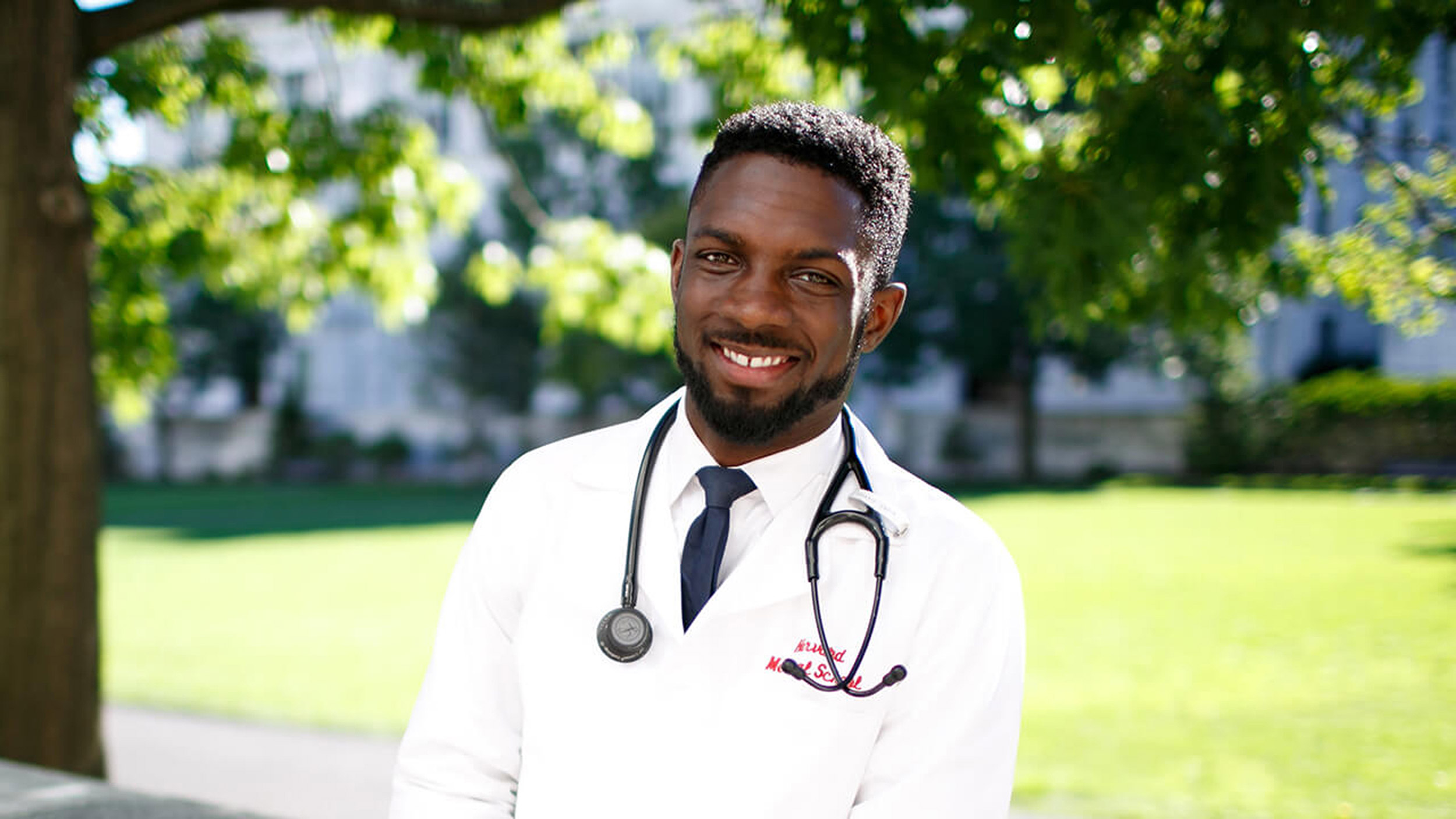
“My parents taught me and my brother that we are who we are not just because of our own efforts but because of the people who invested in us,” says Elorm Avakame, who received concurrent degrees from Harvard Medical School and Kennedy School.
Courtesy of Elorm Avakame
Drive behind pursuing concurrent degrees
Believes fighting for underserved populations is an aspiration and an obligation
“I wanted to explore issues beyond the boundaries of health and health care,” says Elorm Avakame, M.P.P./M.D. ’18.
Avakame chose to pursue a concurrent M.P.P./M.D. degree at Harvard Kennedy School (HKS) and Harvard Medical School because “in Medical School, we are all training to be doctors, but here at the Kennedy School, people are training for so many different walks of life,” he said. “From anti-poverty policy to transportation and criminal justice, the Kennedy School has been a fertile environment for this exploration.
“At HKS, I’ve had the opportunity to take courses in areas I’ve never studied before, such as safety net policy and behavioral economics.”
During his time at HKS, Avakame was a Sheila C. Johnson Fellow at the Center for Public Leadership. “This fellowship has been what I had hoped it would be: a group of like-minded peers working on the issues I’m passionate about. It’s been really great to be around a group of smart, passionate African-American students who share not only my identity but also my aspirations and sense of obligation to our community.”
It’s an obligation Avakame doesn’t take lightly.
“My story is the story of what it means to have a community to lean on,” he says. “My parents were immigrants from rural Ghana, and now my dad is a tenured professor at Rutgers and my mom is a certified public accountant.”
The family’s journey began when Avakame’s father, a subsistence farmer in his home country, went off to university with just two pairs of pants and one bar of soap. He later earned a scholarship to study in Canada for his Ph.D. but didn’t have the funds for the plane ride from West Africa. His family and community pooled their money so he could pursue his dream.
“I don’t think about my work as creating solutions to other people’s problems. Instead, I think of empowering people to solve their own problems.”
Elorm Avakame, M.P.P./M.D. ’18
“My parents taught me and my brother that we are who we are not just because of our own efforts but because of the people who invested in us,” he says. “And the only way to pay these people back is to pay it forward. We owe it to them to invest in others.”
Avakame wants to invest in underserved communities, particularly in black children.
“I know that black children have worse outcomes across so many measures of health,” he says. “Beyond that, as a black person in America, I understand that the opportunities I have were won for me by the black people who came before me. Black people were once murdered for assembling to learn to read; they have died fighting for the right to earn an education and to vote. I am obligated to continue fighting for a better life for my people.”
Racism is a fundamental public problem that, he says, should be more central to the curriculum at Harvard Kennedy School. While he is grateful to his black professors whose courses addressed racism as a deep-seated challenge affecting people’s health, well-being, and prosperity, he says the School must add to their ranks. Similarly, he is thankful for his fellow black students but says, “There aren’t enough of us to bear the burden of everything from the Journal of African American Public Policy to the Black Policy Conference. If the Kennedy School wants these things to continue, we need more African-American students to come.”
As he prepares to move to Washington, D.C., to begin a residency program in pediatrics at Children’s National Medical Center, Avakame says, “I don’t think about my work as creating solutions to other people’s problems. Instead, I think of empowering people to solve their own problems. It’s very easy to go into communities and impose what we think is the right answer. Over and over again at the Kennedy School, I’ve been reminded that public leadership is public service, and that this notion of service means assuming a position of humility relative to the people you’re trying to serve.
“It’s clear to me that what makes people sick and unhealthy are things that happen far before they get to a doctor’s office,” he says.
With his degrees from Harvard Kennedy School and Harvard Medical School, Avakame is poised to influence the upstream factors that cause ill health among at-risk populations.
This article was originally published on Harvard Kennedy School’s Student Life web page in May. It has been lightly edited.




